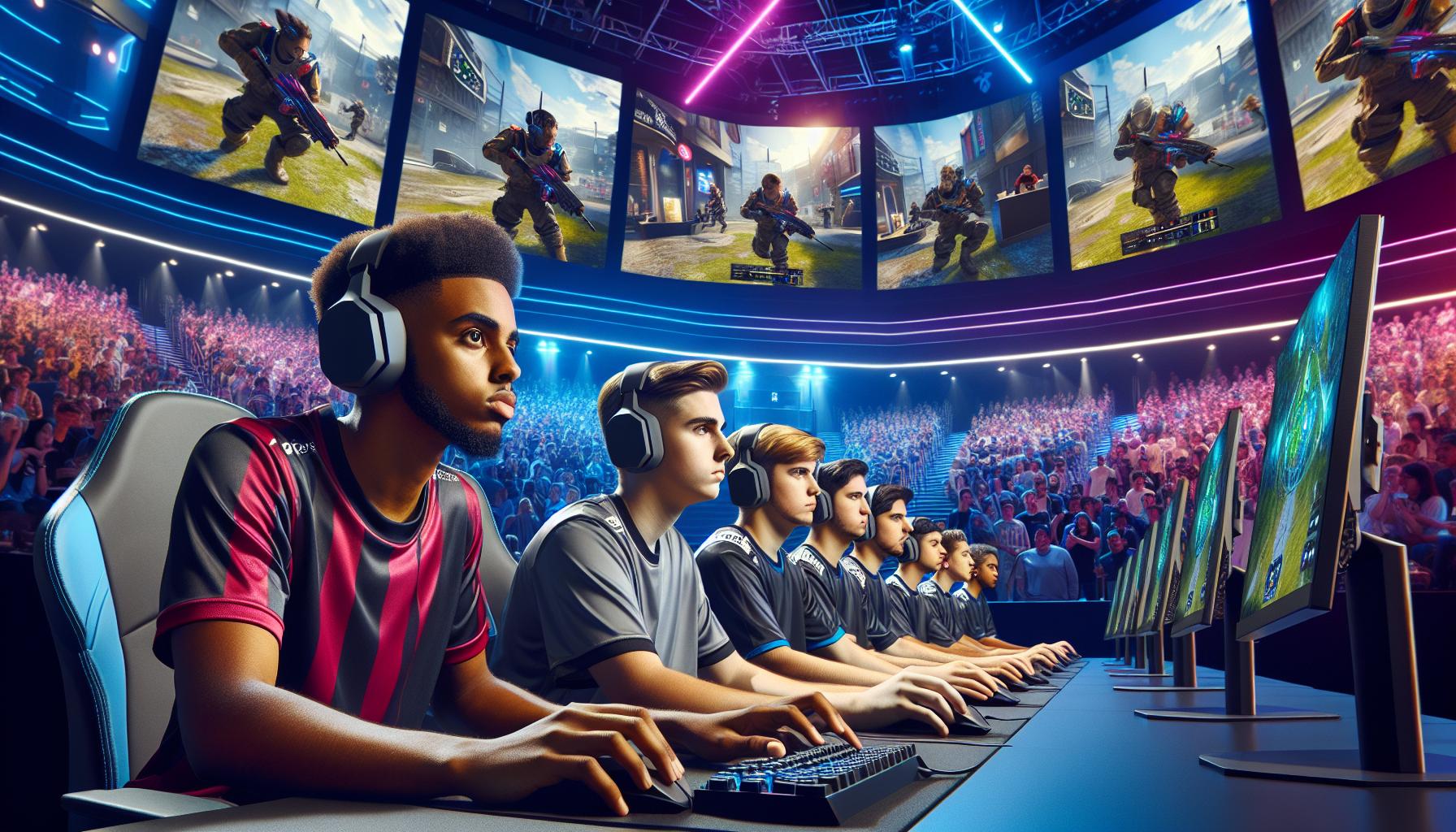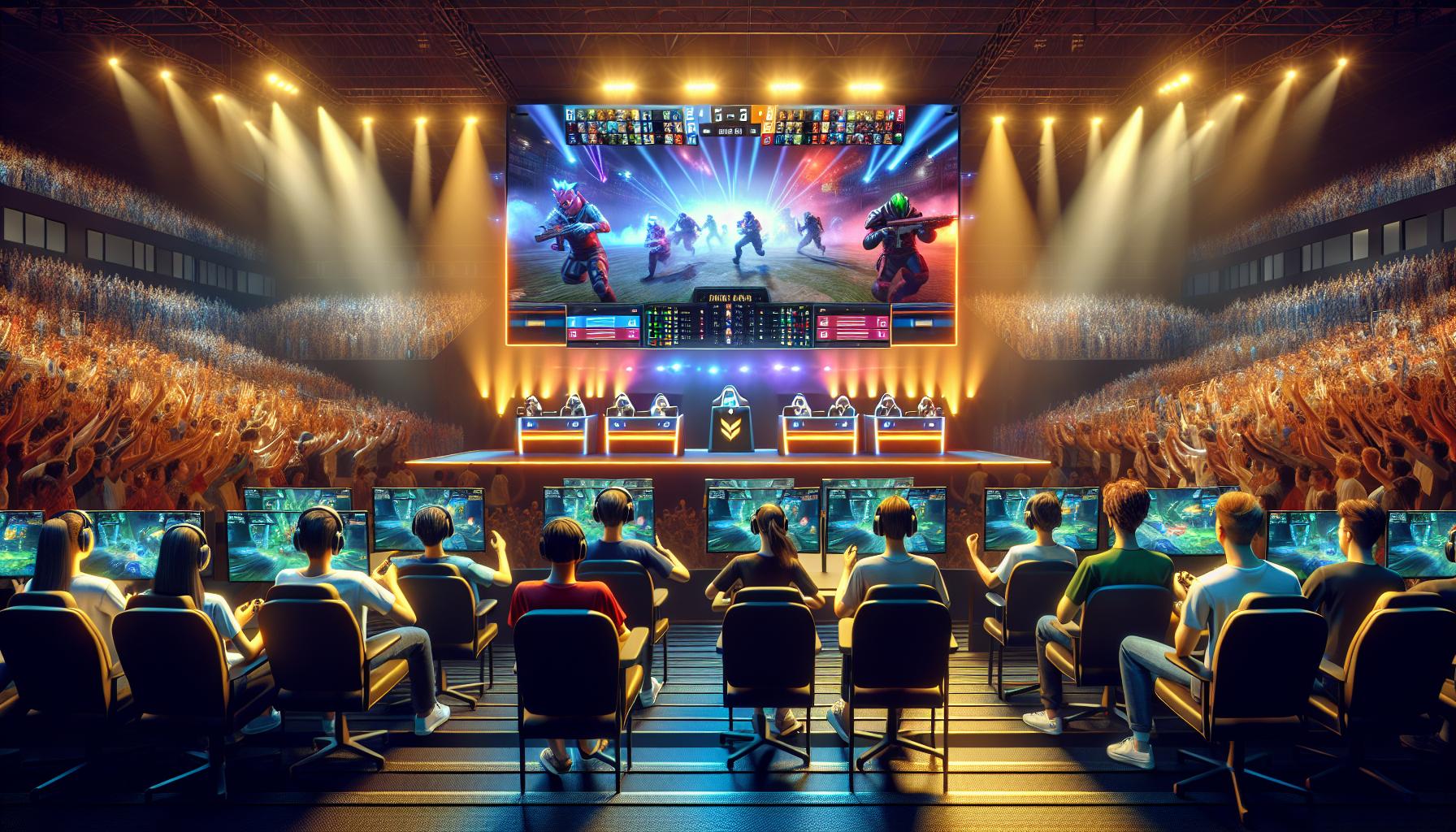
In the pixelated world of gaming, a new contender has emerged, and it’s not just another character or level. Esports has stormed onto the scene, turning casual gamers into competitive gladiators. But as the spotlight shines brighter on tournaments and leaderboards, some argue that the very essence of gaming is slipping away. What happened to the days of couch co-op and epic LAN parties?
As players chase glory and sponsorships, the joy of gaming can feel overshadowed by pressure and performance metrics. It’s like trading in a cozy blanket for a spandex suit—sure, it looks flashy, but where’s the comfort? Dive into the debate as we explore whether esports is truly the villain in the gaming saga or just a misunderstood hero in a world of joystick warriors.
The Rise of Esports
Esports has transformed gaming into a competitive spectacle. Many players now experience gaming in an entirely different light compared to the past.
Definition of Esports
Esports involves organized multiplayer video game competitions. Players and teams engage in competitions ranging from casual matches to large-scale tournaments. These events often feature popular titles such as League of Legends, Dota 2, and Counter-Strike: Global Offensive. A significant aspect of esports includes professional players, who train rigorously to enhance their skills. Alongside gameplay, esports includes commentary, analysis, and live audiences, making it akin to traditional sports. As a result, this competitive framework has shifted perceptions and experiences in the gaming community.
Growth and Popularity
The growth of esports has been explosive over the past decade. Viewer statistics indicate that global audiences for esports events reached 500 million in 2022. Revenue from sponsorships and advertisements has surged, exceeding $1 billion in the same year. Major events fill arenas, drawing thousands of attendees, while online streams attract millions of viewers. Social media has played a crucial role in this trend, with platforms like Twitch and YouTube gaming facilitating growth. The combination of accessibility and engagement has positioned esports as a prominent force within the gaming world.
Esports Ruined Gaming

Esports significantly reshapes the gaming landscape, influencing how players engage with games and developers create them.
Shift in Focus and Priorities
Competitive gaming draws attention away from casual play. Gamers often prioritize performance and rankings over leisure and enjoyment. With the rise of sponsorship deals, many players feel pressure to excel rather than appreciate the game. This shift can lead to a reduction in social interactions that once characterized casual gaming experiences like couch co-op. Traditional gaming emphasizes relaxation and camaraderie, yet esports cultivates a highly competitive atmosphere. As gamers chase opportunities to turn professional, they might sacrifice the fun that initially drew them to gaming.
Changes in Game Development
Developers increasingly design games with competitive elements to attract esports enthusiasts. Titles like League of Legends and Dota 2 dominate the market, leading to many studios focusing on competitive mechanics. The shift influences budgets and timelines, as developers invest in features that enhance competitive play. Game balance receives priority, aiming to create fair play environments for professional competitions. Casual modes often receive less attention, resulting in fewer experiences tailored for relaxed gaming sessions. This trend emphasizes the demand for multiplayer features, sidelining single-player content that once flourished. Overall, the landscape transforms, reflecting the burgeoning popularity of esports and its effect on traditional gaming experiences.
The Community Perspective

The gaming community grapples with the impact of esports on player experiences and the divide between casual and competitive gamers.
Player Experience
Competitive pressure often overshadows the enjoyment of gaming. Players frequently feel a need to excel, leading to stress about performance in online matches. Casual gaming, once rooted in relaxation, now faces challenges. Many individuals miss the simple joys of playing without pressure. As competitive gaming rises, its demanding nature alters player interaction with games. The emphasis on rankings and rewards can diminish the sense of community that originally attracted many to gaming. Fun experiences are constantly traded for the pursuit of sponsorships and accolades, making it critical to find balance.
Casual Gamers vs. Competitive Gamers
Casual gamers prioritize enjoyment and social connections over competition. For them, gaming serves as an escape and a way to bond with friends. Competitive gamers, however, focus on skill and achievement within the esports framework. Their motivation often stems from a desire for recognition and financial gain. This divergence creates tension in the community, with casual gamers sometimes feeling alienated. While competitive players thrive in high-stakes environments, casual gamers seek relaxed gameplay experiences. The coexistence of these two groups reshapes community dynamics, highlighting the need for inclusivity in gaming culture.
Economic Considerations

Esports has significantly impacted the economic landscape of gaming, reshaping revenue streams and community engagement. Understanding these economic factors reveals how esports has transformed traditional gaming.
Revenue Generation
Revenue generation in esports has skyrocketed, with reported earnings exceeding $1 billion in 2022. Major tournaments and leagues draw massive audiences, both online and offline, creating opportunities for monetization. Game publishers and developers now focus on esports-friendly titles to capitalize on this financial influx. Regular investment in prize pools incentivizes top-tier players to engage, fostering a highly competitive environment. With many viewers tuning in regularly, advertisers and sponsors increasingly see esports as a lucrative marketing channel, driving additional funds into the industry.
Sponsorship and Investment
Sponsorship and investment in esports play crucial roles in its expansion. Major brands invest millions in sponsorship deals, aligning themselves with popular teams and events. These sponsorships enhance visibility and provide financial support to drive tournament operations and player activities. Investors also recognize the growth potential, leading to increased funding for esports organizations. As a result, this influx of money impacts game design, prioritizing esports elements over casual experiences. The connection between sponsors and esports creates a cycle that significantly shapes gaming’s future.
Cultural Shift in Gaming
The rise of esports has ignited a profound transformation in gaming culture. Players now often identify as competitors rather than casual gamers.
The New Gaming Culture
Competitive gaming has become the norm, altering how individuals engage with games. Enhanced emphasis on rankings and performance metrics dominates discussions. Casual experiences like couch co-op gatherings fall to the wayside, often supplanted by online tournaments and intense match play. Interaction focuses on skills rather than shared enjoyment. Social platforms further amplify this competitive narrative, compelling gamers to prioritize achievements over simple fun. Titles tailored for esports capture player attention, embedding competitive features into gameplay. This cultural shift fosters a landscape where the thrill of competition overshadows the pleasures of social interaction.
Changes in Gaming Ethics
Shifts in gaming ethics arise as competition takes precedence. Integrity and fairness face challenges, with some players resorting to questionable tactics to gain an edge. This environment nurtures a mindset obsessed with victory, often at the expense of camaraderie. The cutthroat atmosphere detracts from the community spirit traditionally found in gaming. As prioritization of winning increases, so does the pressure on players to perform under stress. This evolution raises questions about the values inherent in modern gaming culture. Balancing competitive ambition with ethical play becomes crucial to ensure a healthy, inclusive environment for all gamers.
The Future of Gaming
The rise of esports has undeniably altered the gaming landscape. While it brings excitement and financial opportunities, it also raises concerns about the essence of gaming itself. The pressure to compete and achieve can overshadow the joy that many players once found in casual gaming experiences.
As the community grapples with this shift, it’s vital to find a balance between competitive ambition and the simple pleasures of gaming. The future of gaming will depend on fostering an inclusive environment that values both competition and enjoyment, allowing all players to thrive in a way that respects their individual preferences.
